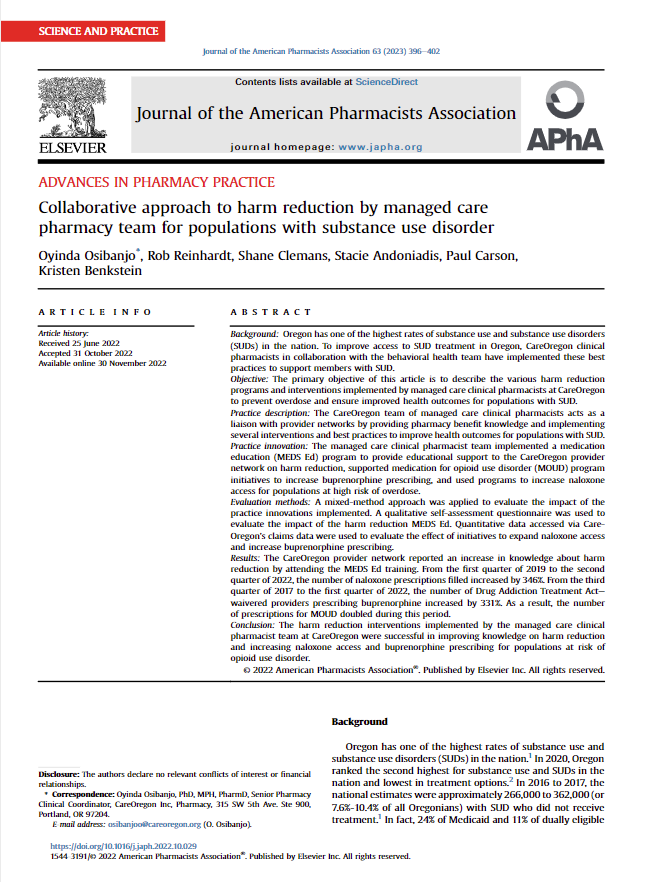Headline
Managed care clinical pharmacists led multiple initiatives to address the substance use disorder treatment gap in Oregon.
Context
In Oregon, rates for substance use and substance use disorder (SUD) are consistently among the highest in the nation and very few Oregonians with SUD receive treatment. CareOregon, a health plan serving more than 500,000 Oregonians – including Medicaid members – sought to address these gaps by implementing a number of initiatives aimed at increasing SUD training and education for providers, expanding naloxone access, and promoting prescribing practices for medications for opioid use disorder (MOUD). CareOregon’s clinical pharmacists helped implement these approaches in partnership with the plan’s Behavioral Health team. Managed care clinical pharmacists have a unique perspective on populations with SUD, given their view of health care utilization and patient care in partnership with the prescribing provider.
Findings
Overall, CareOregon’s multi-pronged initiatives successfully increased provider knowledge about SUD and harm reduction, improved naloxone access, and increased buprenorphine prescriptions and prescribers. Multiple initiatives on expanding naloxone led to a relatively steady increase in naloxone prescription claims during the study period. The initiatives included emergency department (ED)-based “naloxone starter packs” for any patient leaving the ED at-risk of opioid overdose and “academic detailing sessions” with network providers where concerns about prescribing naloxone are met with objective and evidence-based educational information.
In the MOUD initiative, the number of waivered-prescribers steadily increased along with the number of prescription claims for MOUD, which doubled for CareOregon members from the first quarter of 2017 to the first quarter of 2022. Clinics that completed a learning series with a waiver training and other workshops were offered value-based contracts or other financial incentives.
Takeaways
Strong partnerships between managed care clinical pharmacists and providers, including ongoing, consistent communication, and, in some cases, financial incentives or value-based contracting can support effective strategic interventions for individuals with SUD.

